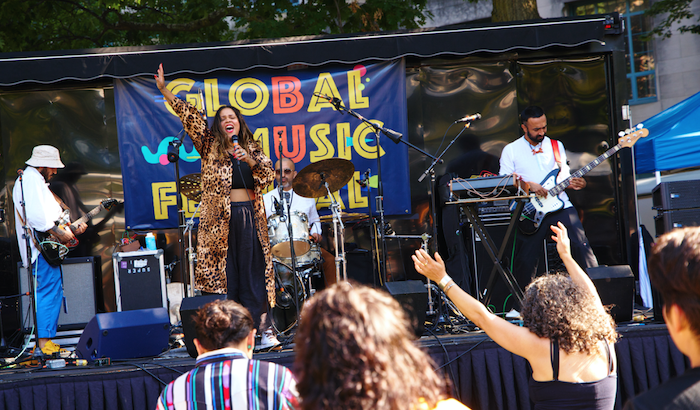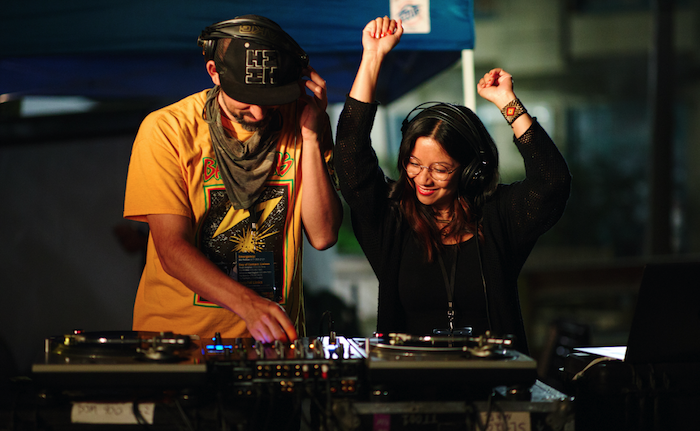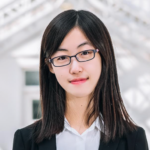
This year’s event will feature eight artists from five continents; for six of them, it will be their debut Boston appearance.
The fifth annual BU Global Music Festival will take place at Boston University on Saturday, Sept. 17. It’s not only free but one of the region’s true world music gems, aiming to celebrate musical cultures from across the globe with distinguished international and local artists alike performing and hosting world music workshops.
Though only founded a few years before the pandemic in 2018, the festival has already twice been recognized for its excellence by the Transglobal World Music Festival Awards, and is growing for its five-year anniversary. Marié Abe, the festival’s artistic director and an associate professor of music at BU, said she founded the event due to growing demand, from BU students as well as the larger Greater Boston community, for experiences beyond those that are “readily available” in Western culture.
“Every year, we try to represent different parts of the world that weren’t represented in previous years,” Abe said.
In this case, representation reaches beyond geographical locations. Abe said women and indigenous voices, for example, are less heard on the music festival circuit but can be found throughout this lineup.
“I think about these things long term and try to bring in different artists every year,” Abe said.
This year’s celebration will feature eight artists from five continents; for six of them, it will be their debut Boston appearance. Julie Williams-Krishnan, a three-time audience member, said she especially enjoys the cultural inclusiveness and female representation.
“It’s great to promote female powerful voices, literally in terms of music, but also just in general to have female stories out in the world,” Williams-Krishnan added.

Staged at the Warren Alpert Mall, commonly called the “BU Beach,” the festival will be family-friendly, free of charge, and open to the public.
Ty Furman, an organizer of the event and managing director of the BU Arts Initiative, said he is committed to breaking down “invisible barriers.”
“I think it matters that it’s free,” Furman said. “To find affordable things in Boston that you can do as a family, it’s always a challenge.”
Looking back, Furman still remembers how he had to budget meals and living expenses as a first-generation student.
“It is something that Boston University can offer as a gift to its students and the Greater Boston community,” Furman said. “We have the resources to do that. And what can be a better place than a university to celebrate world cultures?”
Williams-Krishnan said one of the most memorable concerts she listened to in past years was one with musicians from different parts of Africa along the Nile river.
“I don’t know how 12, 15 musicians came together, and that was just so great because it’s exactly that vision of bringing people together in the love of music,” she said. “I remember I got a CD for my husband, and he still listens to that quite a lot in the car he’s driving.”
Anthony Beatrice, a three-time audience member and the Boston Public Schools executive director for the arts, said he goes to the festival with other music teachers to learn how artists and their cultures are intertwined in their performances.
“To be honest, the majority of music curriculum in the United States is racist. It’s based solely on Western European art and music,” Beatrice said. “What we’re trying to do in the BPS is change that narrative, especially realizing that we have a very diverse student body, and that the music that we were teaching them was not reflective of our students or their families.
Beatrice said one of his most memorable moments of the festival was a 2019 workshop with Balinese arts group Gamelan Çudamani. BPS teachers had the opportunity to interact with the musicians directly, while the artists also invited BPS teachers to go on stage and play their instruments.
“What BU has been able to do has really helped us benefit from an international exposure that we wouldn’t be able to do without their support,” Beatrice said.
Williams-Krishnan also said the festivals are educational: “You learn about different musical instruments and different sounds, different rhythms and beats, but also stories that come along.”
“These are top notch artists that you would have to pay quite a bit for or to go far to see,” Abe added. “To be able to see this in one place on a glorious day on BU Beach for free, it’s a chance that doesn’t come by very often to our doorstep.”
Artemis is a Taiwanese writer, activist, and entrepreneur. At the age of 16, she founded Taiwan’s largest student-based independent international news organization. She graduated with a Bachelor of Laws degree from Peking University and is now a journalism graduate student at Boston University. She hopes to achieve social justice with the power of communication.

